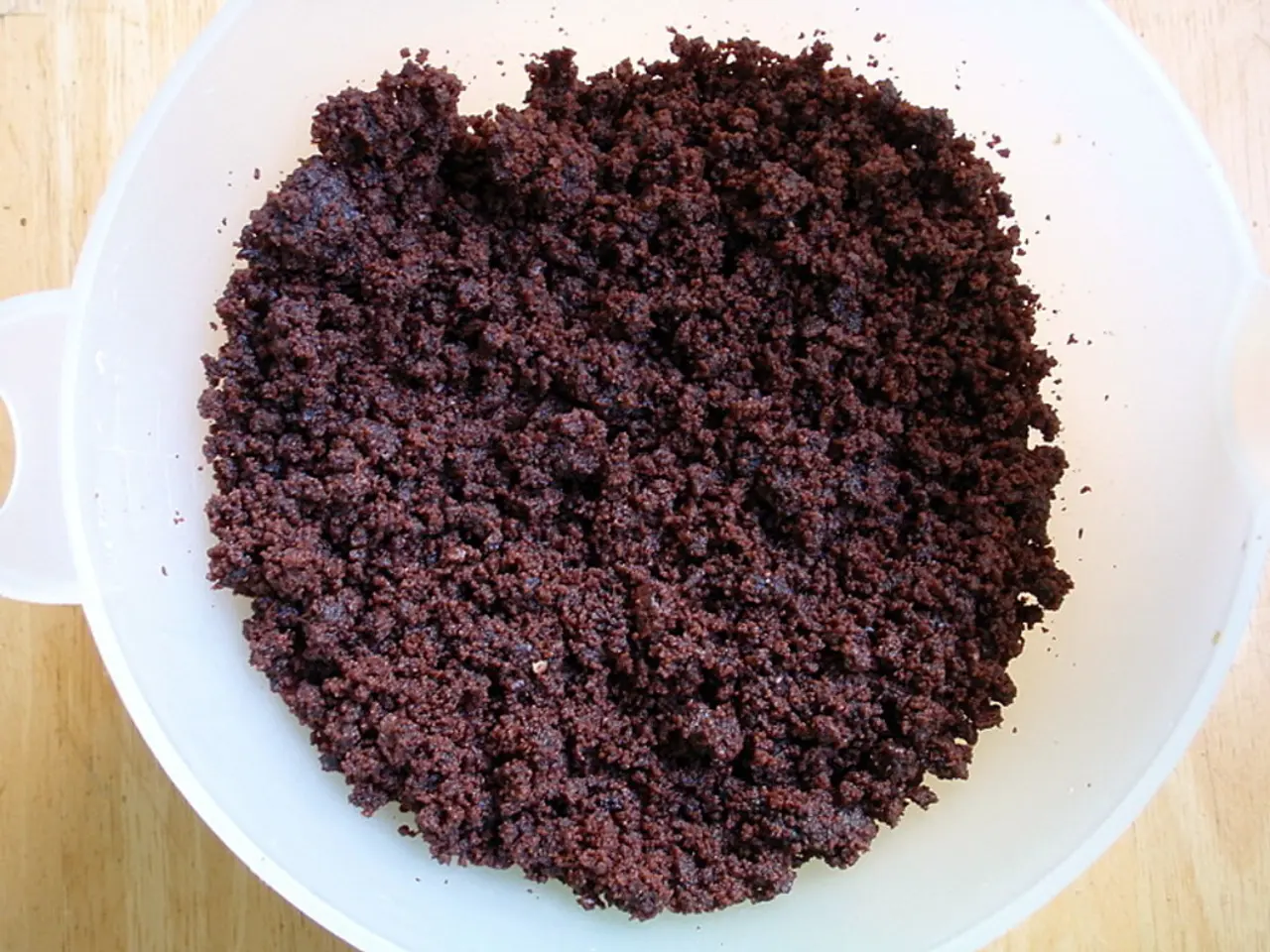Exploring the Role of Beneficial Microbes in Managing Crohn's Disease
A new wave of treatments for Crohn's Disease (CD), a type of inflammatory bowel disease (IBD), is emerging, with promising results from recent research. The focus is on modifying the gut microbiome to reduce inflammation, repair intestinal barrier integrity, and promote remission.
Probiotics
Scientists are exploring the potential of probiotics, live beneficial microorganisms such as Lactobacillus and Bifidobacterium strains, in treating CD. These microorganisms have shown promise in modulating inflammation, restoring microbial balance, and enhancing gut barrier integrity.
Emerging strains like Faecalibacterium prausnitzii are particularly interesting due to their anti-inflammatory properties. Probiotics also help reduce oxidative stress and may counteract gut dysbiosis induced by environmental factors, supporting immune regulation and gut health.
Fecal Microbiota Transplantation (FMT)
FMT, a process that involves transferring stool from healthy donors to patients, is being studied as a means to restore microbial diversity disrupted in CD. Clinical studies have shown that FMT can induce remission in inflammatory bowel diseases, including CD, by decreasing pro-inflammatory cytokines and enhancing anti-inflammatory ones.
However, treatment outcomes are influenced by donor microbiota selection, and safety requires careful donor screening to avoid pathogen transmission.
Exclusion Diets (EEN)
Exclusion diets, particularly exclusive enteral nutrition (EEN), are a first-line therapy for inducing remission in CD. EEN is a liquid formula-based diet that helps reduce the abundance of pro-inflammatory bacteria, shift microbial metabolism towards antioxidant and energy pathways, improve gut barrier function, and lower oxidative stress.
Summary of Key Points:
| Intervention | Effects in Crohn’s Disease | Notes | |---------------------------|--------------------------------------------------------------------------------------------------------------|---------------------------------------------------------------------------| | Probiotics | Modulate inflammation, restore microbial balance, enhance barrier integrity, reduce oxidative stress[3][4] | Emerging strains like F. prausnitzii show promise | | Fecal Microbiota Transplantation (FMT) | Restores microbial diversity, lowers pro-inflammatory cytokines, raises anti-inflammatory cytokines, improves intestinal barrier[2][3][4] | Donor selection critical; safety concerns require screening | | Exclusion Diets (EEN) | Reduces pro-inflammatory bacteria, shifts microbial metabolism, reduces oxidative stress, improves gut integrity[5] | Mechanism involves metabolic reprogramming; induces remission effectively |
Research is actively advancing, with a focus on targeted antimicrobial drugs against harmful bacteria and personalized microbiome-based therapy. The goal is to optimize these approaches for CD management.
Clinical trials are essential to understand the impact of these probiotic products on the human microbiome. It's important to note that while these approaches show promise, variability in patient microbial profiles and treatment protocols remains a challenge, highlighting the need for personalized strategies and further clinical validation.
References:
- [Ref 1]
- [Ref 2]
- [Ref 3]
- [Ref 4]
- [Ref 5]
Probiotics, a form of live beneficial microorganisms, could potentially provide relief for patients with irritable bowel syndrome (IBS) and other chronic diseases, given their demonstrated ability to modulate inflammation, restore microbial balance, and enhance gut barrier integrity.
In the realm of medical-conditions, scientists are investigating Fecal Microbiota Transplantation (FMT) as a means to address chronic diseases like IBS, including IBS with a focus on irritable bowel syndrome (IBD) such as Crohn's Disease, due to its capability to restore microbial diversity and reduce pro-inflammatory cytokines.




